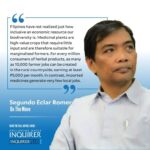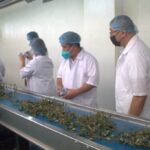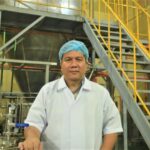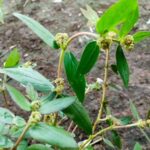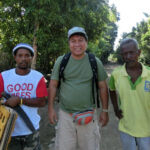PHL experts developing drugs against dengue
Business Mirror
By Lyn Resurreccion – August 11, 2019
PHILIPPINE health authorities declared a national dengue epidemic in the country last week after 622 people died of the mosquito-borne disease and 146,062 cases were recorded since January.
Amid this scenario, Filipino experts have been doing researches for a cure against the fatal disease.
The good news: medicines are now being developed in the country against dengue. This is on top of the supplement that will released by the middle of the month.
A drug that can cure dengue is being developed by a team of researchers led by pharmacologist-epidemiologist Dr. Rita Grace Alvero from the De La Salle Medical and Health Sciences Institute and Pharmalytics Corp.
Science Secretary Fortunato T. de la Peña said the team has started the Phase 1 of the clinical trial for the medicine. Up to Phase 3 clinical trials are required for certification and approval by the Food and Drug Administration (FDA).
However, de la Peña told the BusinessMirror that the team would initially apply with the FDA to have the capsule approved as supplement so it can be used immediately by Filipinos who are suffering from dengue. Supplements do not require a doctor’s prescription.
Research for the medicine started from three herbal plants but the final medicine was extracted from just two plants.
De la Peña estimated that the Department of Science and Technology (DOST) has provided an estimated P8 million for Alvero’s project.
He said the DOST is helping Alvero’s team to hasten FDA’s approval for their supplement so that the people could immediately benefit from it.
He said clinical trials for medicines take years—around two years for preclinical trial using animals, and another two years for clinical trial with humans.
“Although the process [in the clinical trials for the medicine] might hasten because of the current big number of dengue cases [from where the clinical trial could be based] so we can have the medicine soon,” he said.
The herbal has multiple mechanisms of action: antiviral activity against the dengue virus; can elevate the platelet levels which are seen in the complicated cases of dengue responsible for bleeding; and reduction of plasma leakage which contributes to the lowering of blood pressure among the dengue patients.
Herbanext’s supplement also to undergo trials for medicine
AT the same time, the Science chief told the BusinessMirror in a phone interview that Herbanext will still pursue the clinical trial of its Tawa-Tawa antidengue supplement under the brand Daily Apple “to ultimately develop into a medicine.”
He said it has already undergone preclinical trial with rats. He explained that although more than 200 people have initially given their testimonies on the increase of their platelet count, these will not be admitted as a clinical trial, which should be administered by medical doctors.
Inspired by the breakthroughs
DE LA Peña said he is “inspired by the breakthroughs” in making the supplements and drugs against dengue because of the absence of a cure for the dengue worldwide.
“There is already a dengue epidemic in the country. Now we can give our people the supplement, and the medicine in the near future,” he said.
De la Peña said an article from a scientific journal written by Sri Lankan scientists, who searched 867 articles, said the herbal plant tawa-tawa (Euphoria hirta) has “conclusive” effects against dengue because it elevates platelet counts and has antiviral properties. He said this confirms the research of the Filipino experts and shows much hope for the development of the anti-dengue medicine.
‘Tuklas Lunas’
THE Science chief said the researches on dengue cures “justified” the “Tuklas Lunas” program of the DOST.
Tuklas Lunas is the study of a wide range of Philippine plants with folkloric application and background.
“They are now harnessed systematically with the use of extracts as concentrates and not just used as the traditional dry leaves,” he said, citing the use of lagundi, the first herbal medicine in the country against cough.
He explained that herbal plants have tree pathways. They can be developed as herbal supplements, as nutraceuticals, or as medicine. The plants’ active ingredients are extracted and undergo clinical trials until they qualify as medicine. “However, not all can me made into medicine. It depends on their efficacy,” he said.
Dengue supplement
DE LA Peña said the anti-dengue capsule supplement Tawa-Tawa from Herbanext would be available at P15 per capsule on August 12 from the outlets of its Daily Apple brand in Quezon City and the cities of Cebu, Davao, Iloilo, Bacolod and General Santos.
He explained the supplement will not prevent one from having dengue, but should just be taken by people who are ill with dengue in order to increase the number of their platelets.
“It is like taking paracetamol when one already has fever. It is not taken when one has no fever,” he explained.
He said he was informed that the Herbanext supplement can be taken with two capsules three times a day for adults and half of this dose for children.
Dengue research a priority
DE LA Peña said “dengue research and development has always been one of the priority research areas” in the DOST-led Harmonized National Research and Development Agenda.
Through the DOST-Philippine Council for Health Research and Development it has funded a number of research projects—such as that of Herbanext’s and Alvero’s—and programs consistent with the multi-prong approach in the control of dengue that address different aspects, such as diagnosis and treatment.
He said the DOST has funded the development of a rapid diagnostic test (Biotek M) for dengue to diagnose the disease as early as two to three days after the onset of illness.
“This will be very helpful in making the early diagnosis of dengue so that prompt management can be done to prevent complications. This will also help decongest the hospitals that are constrained to keep the dengue suspects confined in the hospital for monitoring until the diagnosis is established, as well as to alleviate the anguish of patients and their relatives as to the confirmation of the diagnosis of dengue,” he said.
This diagnostic kit is already available in a number of public hospitals and will be made available to the dengue affected areas in cooperation with DOST regional offices and the Department of Health.
Use of radiation to sterilize, reduce dengue mosquito population
ANOTHER research that is being done buy the DOST is the use of radiation to sterilize mosquitoes. The DOST-Philippine Nuclear Research Institute (PNRI) scientists are starting to develop the sterile insect technique (SIT) to reduce the population of Aedes aegypti, which serves as the vector for dengue, chikungunya and zika virus.
PNRI scientists rear male mosquitoes in the laboratories to be exposed to gamma radiation which sterilizes the insects. After which the mosquitos will be released to partner with females in the target areas.
Mating with sterilized male mosquitoes produces no offspring, and when sterile males are continuously released in the target area, the population of mosquitoes can be reduced.
Researchers aim to use the SIT, along with other conventional methods of pest control, which unlike pesticides, sterilizing male mosquitoes does not pollute the environment and affects only the target insect while sparing many other natural mosquito predators.

